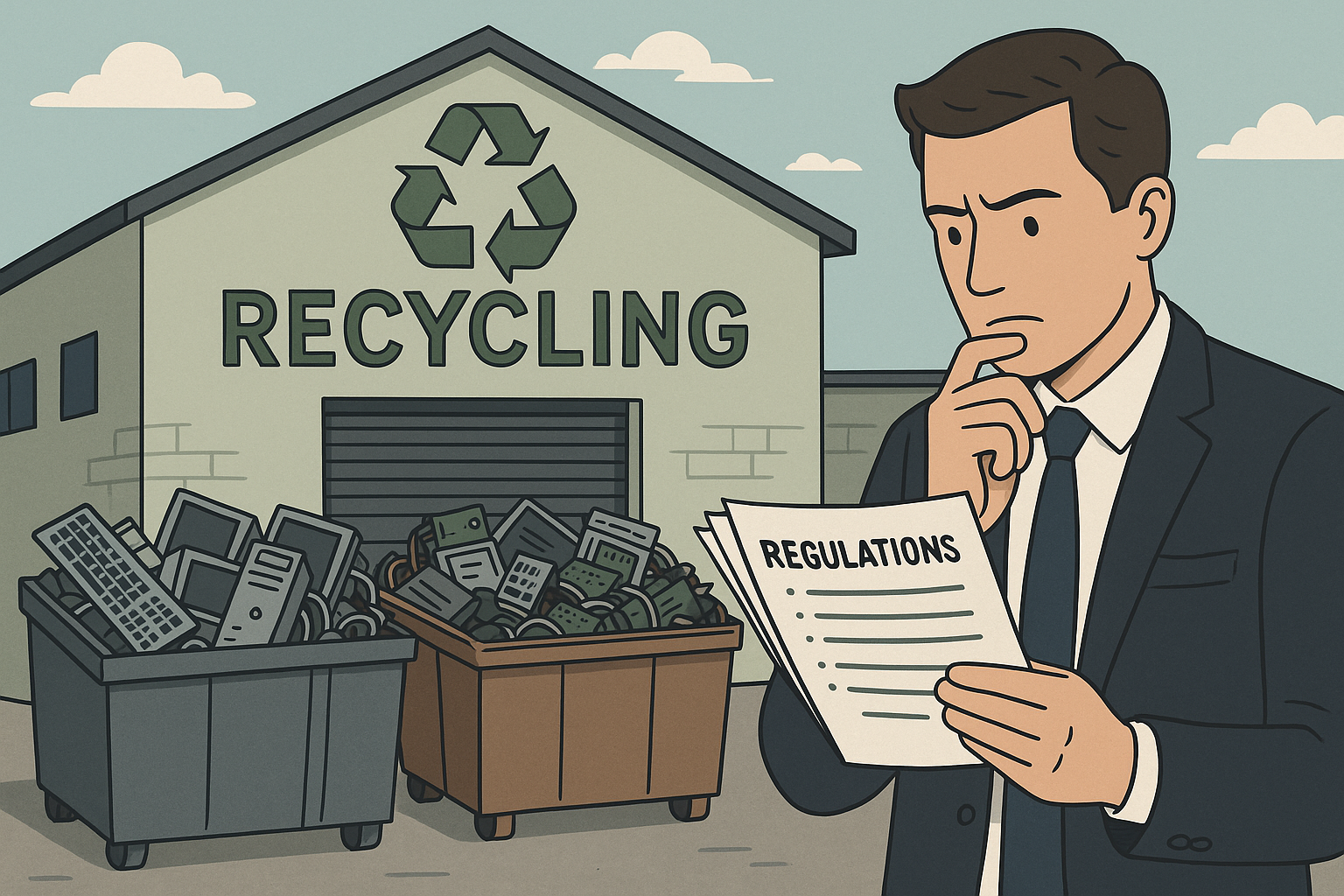Between regulation and practice: The disposal of ICT end-user-devices in Swiss recycling companies

Topic
This master's thesis examines the current policies applicable to the disposal of ICT end-user-devices, particularly laptops, tablets, and smartphones, and how these guidelines are implemented by Swiss recycling companies. Through a combination of literature research and expert interviews, this study analyzes the practical application of existing regulations and the key challenges in the recycling process. It focuses on areas of tension involving technology, ecology, and economics, particularly conflicts between recycling quotas and environmental impact and economic hurdles in the reuse of recycled materials.
Relevance
The increasing number of ICT devices per capita is generating growing amounts of electronic waste – around 130,000 tonnes annually in Switzerland. Efficient recovery of raw materials is crucial for a sustainable circular economy. Recycling experts are under growing pressure to comply with regulatory requirements, meet environmental standards, and remain economically viable. The findings of this study provide practical insights and recommendations for the industry to strengthen resource conservation in the digital age.
Results
The results of this master's thesis show that the existing policies in Switzerland are comprehensive and are largely implemented by recycling companies. However, the greatest challenges arise from conflicting goals: between economic viability and ecological impact, between legally required recycling rates and their actual benefits, and in the reintegration of recycled materials into the market. Despite technical feasibility, there is often a lack of economic incentives or ecological sense to effectively reuse recycled materials. The increasing miniaturization of devices also makes resource-efficient dismantling more difficult, with manual removal of hazardous substances remaining essential but resource-intensive.
Implications for practitioners
- Target the return of recycled materials to the market through binding minimum quotas.
- Align recycling rates with ecological impact rather than technical maximums.
- Enable reuse through return systems in the B2C sector that comply with data protection regulations .
- Bring economic efficiency and recycling requirements into realistic harmony.
- Simplify and accelerate export processes through digital notification procedures.
Methods
This Master’s thesis is based on a mixed-method approach. It combines a comprehensive literature and policy analysis (Policy Overview) with a qualitative research design. Five experts from the Swiss recycling industry and industry associations were interviewed using semi-structured interviews. The interview data was then inductively coded and analyzed using the Gioia methodology. This approach enables a detailed understanding of both the regulatory framework and its practical implementation, including the associated challenges. The interviews also provide insights into the operational processes of Swiss recycling companies, the difficulties in dismantling, sorting, and reusing electronic devices, as well as existing structural goal conflicts.
